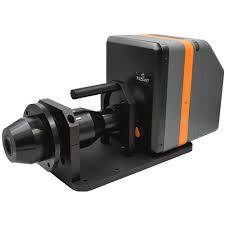Conoscope Lens for Accurate Angular Measurement | Optical Precision Tool

Many engineers, scientists, and optical system designers struggle with inaccurate angular measurements in optical testing. Even small misalignments or errors in reflection angles can compromise the reliability of your results. The root cause often lies in using traditional lenses or detection methods that can’t capture the full angular distribution accurately.
This is where the conoscope lens becomes essential. It addresses the pain points of inaccurate measurements, slow testing, and limited angular data by providing a precise, wide-angle optical solution.
Why Traditional Lenses Fail for Angular Measurements
1. Limited Field of View
Conventional lenses capture only a small portion of angular information, requiring multiple measurements to reconstruct a complete profile. This increases time and potential error in experiments or quality control.
2. Inaccurate Reflection Detection
Without specialized lenses, reflected light may scatter, causing misinterpretation of optical properties. This can lead to flawed analysis in materials research or display calibration.
3. Slow and Complex Setup
Multiple detectors or rotating components are often needed to capture angular information, making the testing setup bulky and prone to misalignment.
How a Conoscope Lens Solves These Problems
1. Full Angular Measurement in a Single Shot
A conoscope lens allows the collection of complete angular information in one measurement. This dramatically reduces testing time and increases reliability, especially for surface inspection or optical characterization.
2. High Precision and Accuracy
Conoscope lenses are designed to minimize distortion while accurately mapping angular distributions. This ensures that every measurement reflects true optical behavior, which is critical for quality control, research, and display technologies.
3. Compact and Easy to Integrate
Unlike multi-detector setups, conoscope lenses are compact and easily integrated into existing optical systems. Their design allows for stable mounting and reduces alignment errors during tests.
Applications Where Conoscope Lenses Make a Difference
1. Display Technology
From LCD to OLED panels, conoscope lenses are used to measure the angular distribution of light, ensuring consistent brightness and color across the viewing angle.
2. Material Science and Surface Analysis
Researchers use conoscope lenses to analyze reflective surfaces and coatings, providing detailed angular data that traditional lenses cannot capture.
3. Optical Engineering and Device Testing
Engineers rely on conoscope lenses for accurate characterization of lenses, waveguides, and other optical components. The lenses improve system calibration and help optimize performance.
4. Semiconductor and Photonics Industry
Precise angular measurements are crucial in photonics and semiconductor manufacturing. Conoscope lenses enable high-accuracy testing of light sources and optical paths.
Why Investing in a Conoscope Lens Is Worth It
If your work depends on precise optical characterization, a conoscope lens is a must-have tool. It solves the pain points of slow testing, inaccurate angular data, and complex measurement setups. By integrating a conoscope lens into your system, you gain faster, more reliable measurements and higher confidence in your results.
Whether you’re improving display technology, analyzing materials, or testing optical components, this lens ensures you capture the data that truly matters.
Conclusion
For anyone working in optics, photonics, or materials science, relying on traditional lenses often results in inaccurate angular measurements and wasted time. Using a conoscope lens solves these issues by providing accurate, full-field angular data in a compact, easy-to-use form. It is an essential investment for engineers, researchers, and optical system designers seeking precision, reliability, and efficiency in their work.
- Art
- Causes
- Crafts
- Dance
- Drinks
- Film
- Fitness
- Food
- الألعاب
- Gardening
- Health
- الرئيسية
- Literature
- Music
- Networking
- أخرى
- Party
- Religion
- Shopping
- Sports
- Theater
- Wellness


